
We're in a room with eight young women who are baffled, bored, and disgusted in equal measure by the word "politics". These are women who have never voted, except for one who cast her ballot in last year's general election but doesn't think it made a blind bit of difference. Not one of them has heard of Labour leader Jeremy Corbyn.
This should worry the Labour party, which is counting on winning over a large proportion of young non-voters to beat the Conservatives in 2020. Less than half of under-35s took part in the 2015 election, compared to almost 80% of over-65s. Corbyn prides himself on reaching parts of the electorate that other politicians can't reach, as his stunning leadership victory appeared to prove last summer.
But his message certainly isn't reaching every disillusioned young person in the country. Labour MP Gloria De Piero, in the newly created role of shadow minister for young people and voter registration, wants to find out why so many twentysomethings just don't care about voting. BuzzFeed News joins her at a community centre in Barking, east London, where she hears some difficult home truths.
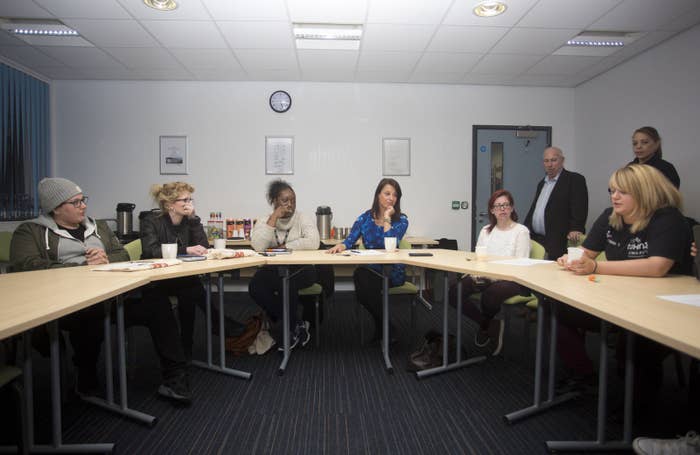
On the panel are Taylor Clements, 23, a behaviour specialist in schools; Emma Wynne, 24, who works in a betting shop; Parissé Everiste-Clifford, 24, who works in a special needs school; youth workers Nicole Mann, 21, and Cassie Hull, 24; Rudine Steer, 23, a full-time mum training to be a youth worker; Donna Dennis, 24; and Nadine White, 26, a teaching assistant.
They've been brought together by the Young Women’s Trust, a charity supporting 1 million women living on low pay or no pay. De Piero starts by pointing out that most people under 24 have never voted.
Gloria De Piero: What do you think when I say the word politician?
Cassie Hull: Boring.
Taylor Clements: Liar.
Emma Wynne: I just don’t actually get what they do, I don’t understand what they’re doing.
CH: People in politics, they understand it [but] for young people, you’ve got to break that stuff down for us because that just goes over our head.
GDP: So you’ve basically got no idea what we’re on about?
CH: Basically, yeah.
Rudine Steer: I don’t have a clue.
GDP: I agree with you on that. Sometimes it’s like politicians have invented this language that only they use. Can you ever see a time when you might think about voting?
CH: Yeah, I can. When politicians start breaking it down for us, that’s probably the only time I’d vote.
TC: Explain to me what voting is.
EW: And why are we voting?
TC: I would like to vote but I want to know what I’m voting for. So until you can tell me, word for word, what I’m voting for, I’m not gonna do nothing.
Nadine White: I have voted, in the last election. I was working alongside the [Young] Women's Trust and they said, 'You can have a say, there are parties in line with what you’re thinking,' so that’s why I did vote.
GDP: Did you think it was worthwhile?
NW: No. I just feel I put a tick in the box.
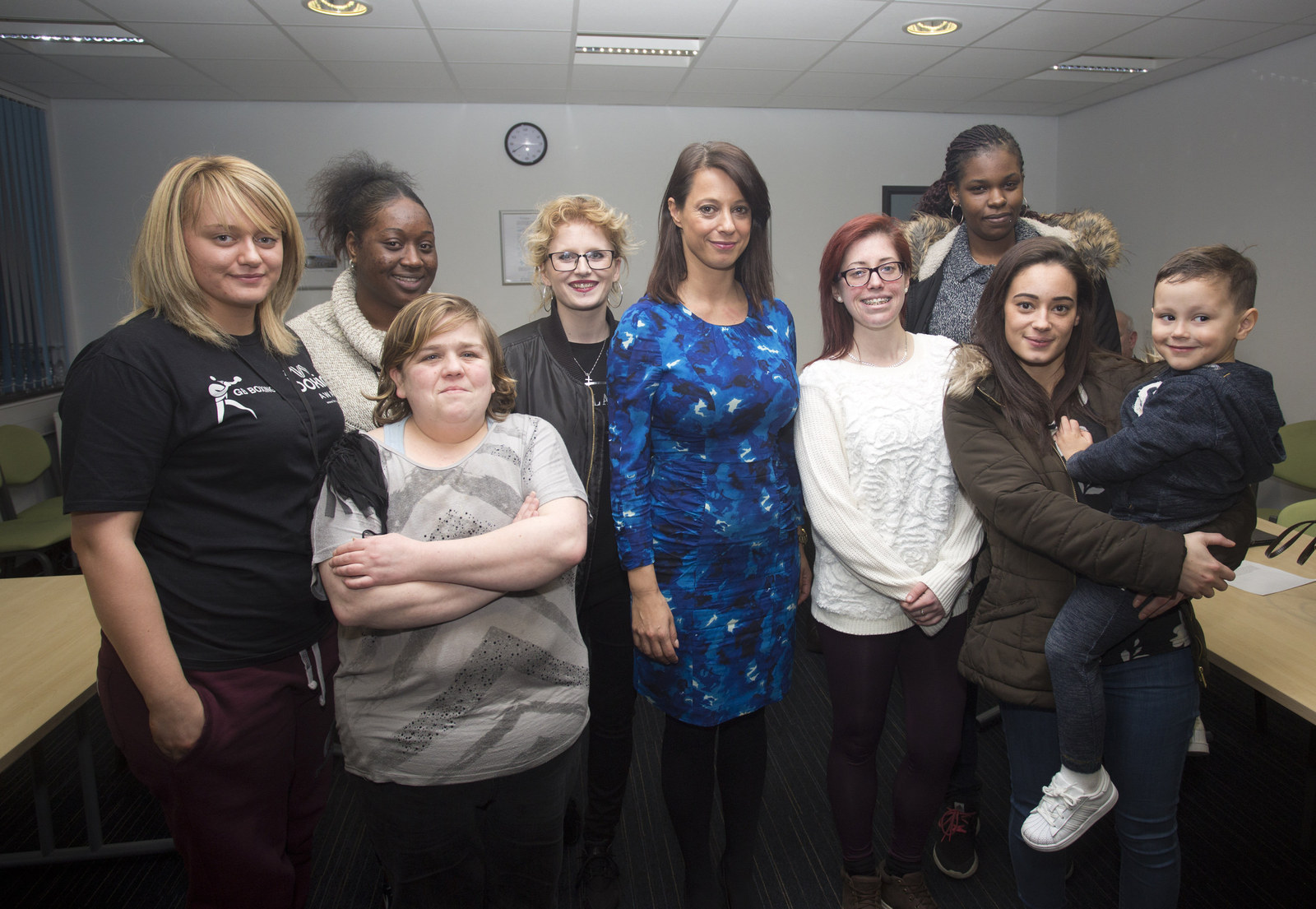
With elections for local government and London mayor looming in May, and the EU referendum expected in June, the next few months are key to making sure young voices are heard. The Intergenerational Foundation think-tank has warned that young people are being “locked out” of UK democracy because of a rapidly ageing population. This inevitably means even more government policies aimed at older people – in a bid to attract their vote – and fewer offers for young people.
As De Piero discovers, it's not as though these women don't want to see changes in their local area and better policies for young people. They just don't believe voting will ever make a difference. And they feel incredibly alienated from the politicians making the decisions on their behalf.
GDP: If I said to you what does the Labour party stand for, does anyone have any idea?
Parissé Everiste-Clifford: Working class. The Conservatives are more like middle-class and upper-class, and Labour’s more like working-class and ordinary people.
GDP: So you know that, but that’s not enough for you to go and vote?
PEC: I think Labour just say 'we’ll do this, we’ll do that' and we don’t see it. False dreams.
GDP: If you had the prime minister here and you wanted him to change one thing, what would you say?
Nicole Mann: Stop spending money we haven’t got. They haven’t got the money to house people.
PEC: I think they’re trying to be heroes for other countries, when the problem is here. Charity starts at home. You need to fix what’s happening here before you start to branch out to like other countries. Obviously we need to help them, but we need to sort out what’s going on here first.
GDP: What's the biggest thing going on here that you’d like to sort?
PEC: People not getting jobs, people not being housed. You can walk around here and see how many people are homeless and how many people are just sleeping in the graveyard. I feel that it’s so heartbreaking and so cold.
TC: I would like to see politicians meeting the people, coming to Barking and Dagenham and seeing for themselves...
CH: Yeah, walk a day in our shoes instead of dictating how we’re meant to live. They need to realise what we go through in everyday life.
GDP: It’s an interesting idea so what could we do to make that work? You think every MP should spend, what, a day..?
CH: A week! A month!
TC: And if you were to cut their money, they’d have a heart attack.
CH: If they couldn’t buy their fine food from Marks & Spencer or Waitrose and live on Asda Value 5p pasta...
PEC: I think they should meet the alcoholics, the drug addicts – they’re the people we see every day.
CH: It’s like that programme Undercover Boss. You turn up in your two-stripe tracksuit, you turn up in your bashed-up trainers, you haven’t washed your hair for about two weeks 'cos you can’t afford hot water – then we’ll take notice.
TC: There is another issue. They lie, they lie way too much. They promise you they’re gonna do this, they’re gonna do that, but once they’ve voted they don’t do it. They just try and sweet-talk you, really.
NM: They say they’re gonna do certain things but as soon as they get into power, they literally change everything.
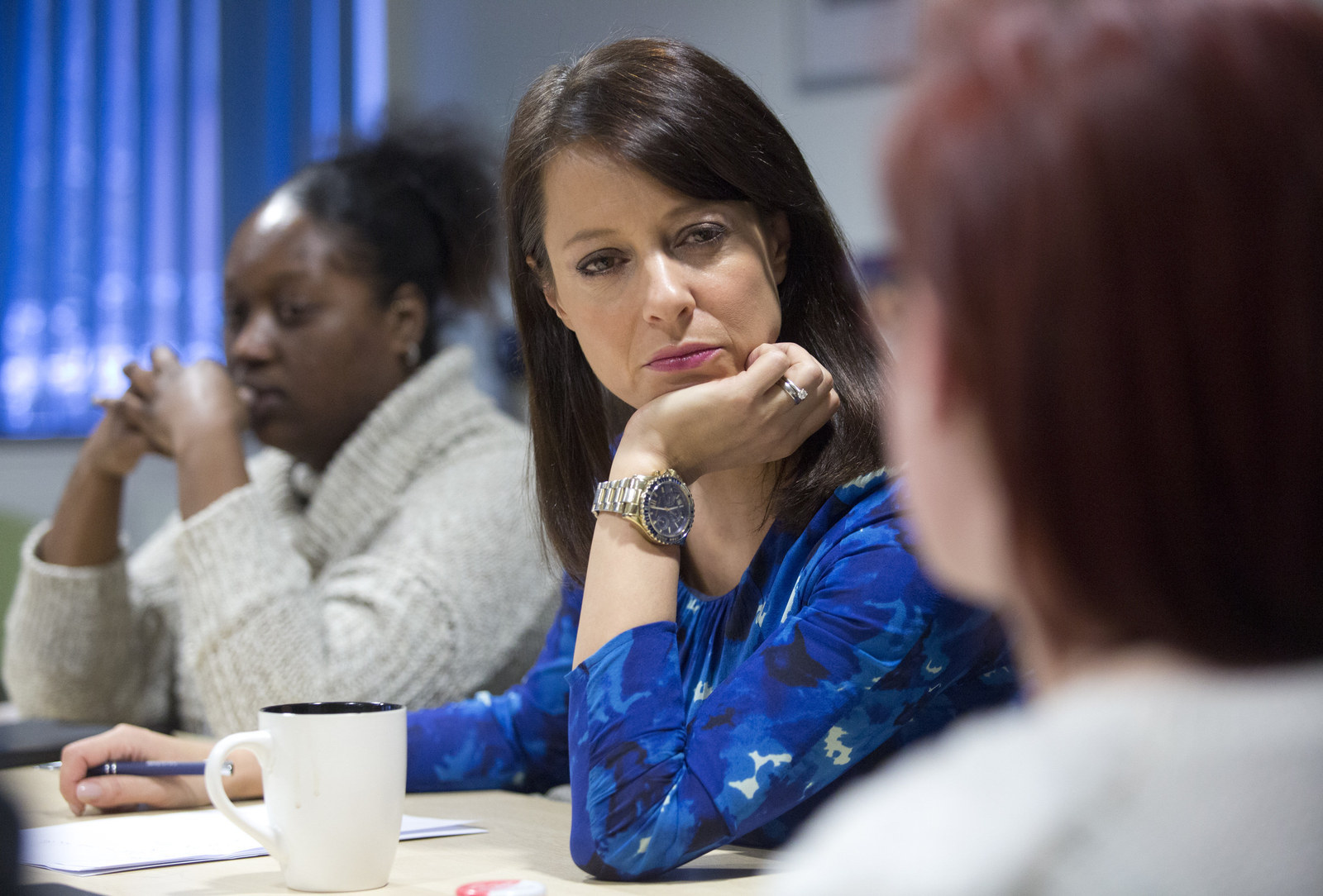
De Piero says she understands what they're saying about "loads of posh people who talk a load of nonsense in the chamber". She grew up in Bradford, West Yorkshire, and lived on benefits from the age of 10 after her father became ill and was unable to work. She vividly remembers being forced to stand in a separate queue for free school meals and says she avoided school on "own-clothes days".
She wants to see a House of Commons that's more representative of real life, and encourages the young women to stand for office. The average age of councillors, MPs, and party members is over 50, according to the House of Commons library. The number of young people in parliament has barely changed since 1979.
GDP: Maybe if you got involved in politics and stood for the council and became MPs, then maybe we could change politics together.
PEC: But we don’t know about the opportunities. People who are upper-class know what’s available for them. But people who are working-class, we’re more focused on getting a meal on the table right now.
CH: People will be patronising. They would see us as riff-raff.
TC: But we’re not. We know who we are so that don’t matter.
CH: But it’s whether they listen to us, that’s the thing.
NM: The problem is that by the time you’ve worked your way up to make changes, they’ve changed your mind.
GDP: It’s a chicken and egg. You think politicians don’t care about you, so politicians don’t care about you because they don’t think you’re going to vote. You let them get away with murder. If you want to hurt us, then vote.
NM: What if you don’t agree with any of their views? Even with one party, there’ll be things you don’t agree with. So how can you vote for them?
CH: I’ve seen politicians on telly talking about their party and what they’re going to do and it’s all bullcrap, it’s boring. Nothing triggers young people to be interested in it.
PEC: I think they need someone like us, someone we can relate to. 'Cos I can’t listen to the "hear hear"...
CH: They’ve got a silver spoon in their mouth, we don’t speak like that. David Cameron, all those long words, no. That’s not us, we’re proper English, we want to hear it simple.
PEC: If we heard someone like Lord Sugar or something, someone Cockney, we’d be like, OK, yeah. [laughter]
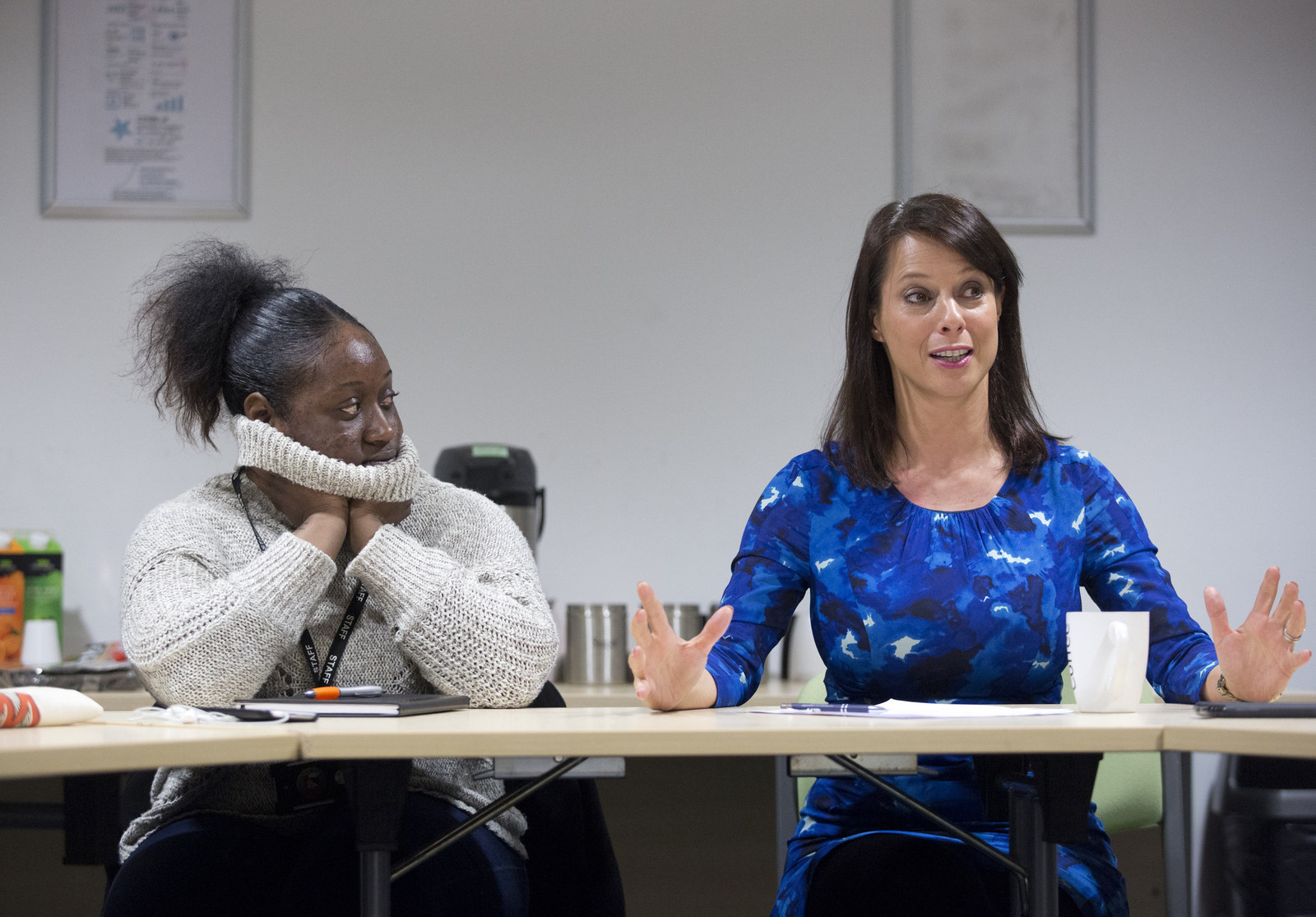
The women believe politicians will never really understand what they go through every day. They're particularly angry about the cost of housing and travel. And they're adamant voting will never help get these problems sorted.
EW: Say you really, really want a job. Your national minimum wage is £6.70 an hour, you do 30 hours a week, [but] your rent is £800 a month – so you can’t work. And then they moan at you in the jobcentre and say they’re gonna stop your benefits because you’re not looking for a job, but at the same time you can’t afford to. That’s a big issue with a lot of people.
TC: I've been bidding on the council [for a house] since I was 16. Me and my partner both live in a little tiny room at my mum’s, hoping the council will rehouse me.
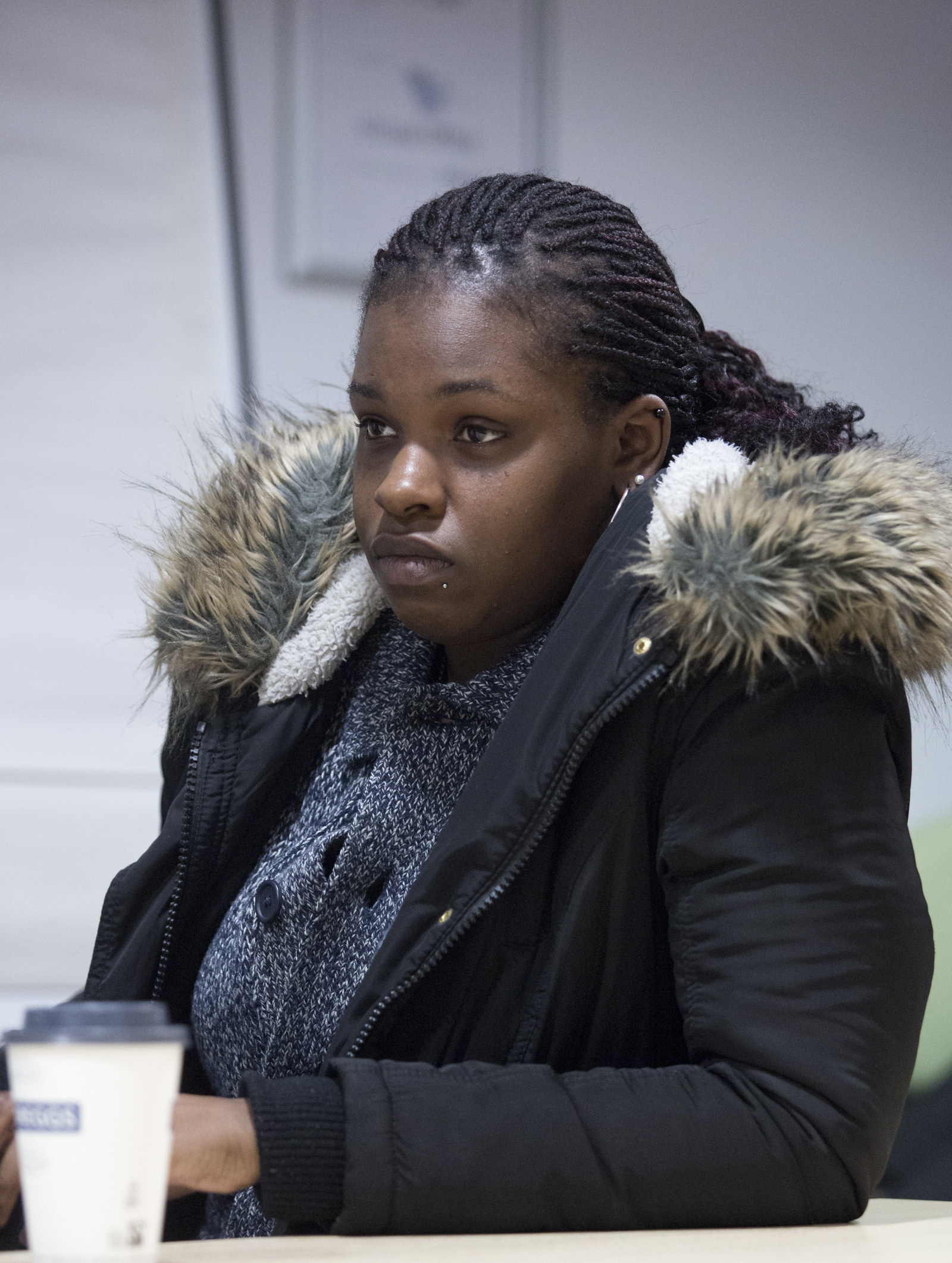
GDP: What are the chances of you getting a deposit for a house?
TC: Nothing. No chance.
NW: Maybe out in the country or something.
PEC: I’m going to own. I will own my own home. I'm determined.
EW: Even the price of the bus is ridiculous. £4.40 for a one-day travelcard? It's outrageous.
GDP: You’re so angry with politicians, yet you still won’t vote.
CH: 'Cos it’s a waste of breath. It’s a waste of five minutes of even thinking about it – I’d rather think about what I’m doing for my dinner.
NW: It’s voting on what they’ve already decided. You don’t have a choice on what they’re actually doing. Oh, so you’re going to cut housing benefit by 10%, you’re going to by 15% – which one do we vote for? It doesn’t make a difference.
De Piero invites the young women to parliament to meet other MPs and tell them straight what they think of politics. BuzzFeed News asks what they make of Jeremy Corbyn – do they rate him as Labour leader? There are blank looks all round.
TC: Don’t know who he is.
EW: Who’s Jeremy Corbyn?
PEC: Who’s that?
TC: We don’t know nothing about politics.
In fact the only politicians they can name are Tony Blair, David Cameron, Margaret Thatcher, and "the one with the funny hair", who turns out to be Boris Johnson. Afterwards, De Piero says the conversation has been eye-opening.
"These young women were smart, opinionated, and angry about so much, but they didn't see voting as an answer to any of their problems," she tells us. "That's not their fault. It's the fault of politics. The Labour party won't give up on them and meeting them makes me even more determined to change the way we do politics so that it's relevant to them and their lives."
